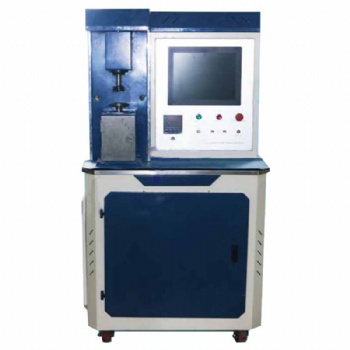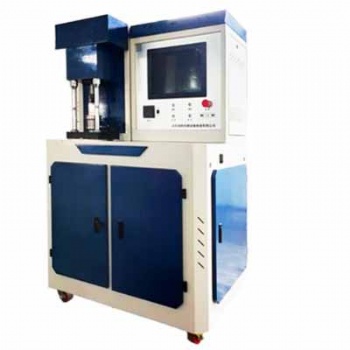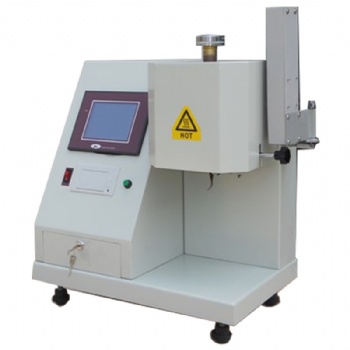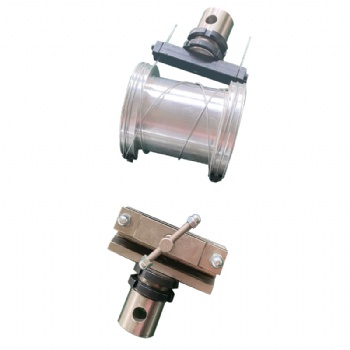News
The 10kN Tension Stress Tester: A Comprehensive Overview
The 10kN Tension Stress Tester: A Comprehensive Overview
In the world of material testing, precision and reliability are crucial for ensuring the quality and durability of products. One of the essential machines used to evaluate the tensile strength of materials is the 10kN Tension Stress Tester. This versatile testing equipment is indispensable for industries ranging from manufacturing to research and development, as it helps assess how materials respond to tension, providing valuable data on their structural integrity and performance.
What is a 10kN Tension Stress Tester?
A 10kN Tension Stress Tester is a device designed to measure the tensile strength and elongation of materials when subjected to tension. The term 10kN refers to the machine’s load capacity of 10 kilonewtons (kN), which is the amount of force it can apply to a test specimen. This testing machine is ideal for testing a wide range of materials, including metals, plastics, rubbers, textiles, and composites. It works by applying a controlled tension force to the material until it breaks or deforms, allowing engineers to measure how much stress the material can withstand before failure.
Key Features of the 10kN Tension Stress Tester
The 10kN Tension Stress Tester comes equipped with several key features designed to ensure precise and reliable testing results:
Load Capacity: With a maximum load of 10kN, it can test materials that require moderate tensile force, making it suitable for various applications in engineering, construction, and product testing.
Accuracy: The tester is equipped with precise load cells and sensors, ensuring high accuracy in measuring the force applied during testing.
User-Friendly Interface: Many modern versions feature digital interfaces that allow users to monitor real-time data, adjust parameters, and store results for future analysis.
Versatility: It can be used to test a wide range of materials, from soft rubbers to rigid metals, making it versatile enough for multiple industries.
Data Analysis: Most 10kN tension testers are integrated with software that can automatically calculate key parameters such as tensile strength, elongation, and Young’s modulus.
Applications of the 10kN Tension Stress Tester
The 10kN Tension Stress Tester is used across various sectors to ensure the quality and performance of materials and products. Some of its common applications include:
Rubber and Plastic Testing: The tester is widely used in the automotive and manufacturing industries to test rubber seals, tires, gaskets, and plastic parts, ensuring they can withstand tensile forces without failure.
Textile Industry: In textiles, it is used to test fabrics, yarns, and threads to assess their strength and elongation properties under tension.
Metal Testing: It is frequently used in the metalworking industry to evaluate the tensile strength of metals like steel, aluminum, and copper. This helps ensure the metals meet required standards for structural applications.
Construction Materials: In construction, the tester helps assess the strength of materials like concrete reinforcement, cables, and wires, ensuring they can support loads during use.
Product Development: During the product design phase, manufacturers use tension testers to ensure prototypes can withstand everyday use without breaking or deforming under stress.
Why is the 10kN Tension Stress Tester Important?
The importance of the 10kN Tension Stress Tester lies in its ability to provide critical data on material performance. By applying controlled tension to a material and measuring its response, engineers can:
Determine material strength: Understanding how much stress a material can tolerate before failure ensures the product or structure will perform safely under real-world conditions.
Evaluate material quality: The tester helps identify any weaknesses or inconsistencies in the material, allowing manufacturers to refine their processes and improve product quality.
Comply with industry standards: Many industries have strict guidelines regarding material strength and safety. The 10kN Tension Stress Tester helps companies ensure their materials meet these standards, reducing risks and improving safety.
Enhance product durability: With precise testing, manufacturers can select materials that offer optimal strength and longevity, resulting in more reliable and durable products.
Test Standards for the 10kN Tension Stress Tester
To ensure consistency and accuracy, the 10kN Tension Stress Tester adheres to several international testing standards, including:
ASTM D638: A standard test method for tensile properties of plastics.
ISO 527: A standard for testing the tensile properties of plastic materials.
ASTM E8: A standard for the tension testing of metallic materials.
ISO 6892: A standard for the tensile testing of metals.
By following these standards, manufacturers can ensure their testing procedures are both reliable and globally recognized.
Conclusion
The 10kN Tension Stress Tester is a vital tool for industries that rely on material strength and durability. With its precise measurement capabilities and versatility, it provides crucial data for product development, quality control, and safety testing. Whether in the automotive, textile, metalworking, or construction industries, this testing machine helps ensure that products perform optimally, meet regulatory standards, and ultimately, keep users safe.
Investing in a 10kN Tension Stress Tester is essential for any business looking to produce high-quality, durable materials or products.
leather breaking strength testing machine, 20 ton tension test device, 20 ton tension strength test device, 200kn computerized electronic universal testing machine
china 10kn tension stress tester 10kn tensile testing machine tensile strength tester 10kn 10kn tensile test machine 10kn tension testing equipment price factory supplier manufacturer vendor
Categories
Contact Us
- +86-18615632092
- sophie@jnwtbte.com
- +86-18615632092




 售前客服
售前客服